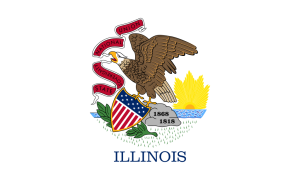Voluntarily Disclose for Unreported and Underreported Illinois Sales Tax
By: Mansoor Ansari, Chicago Tax Attorney
Title 86 Part 210 Section 210.126 Voluntary Disclosure
Common Causes of Unreported Sales Tax
Most business owners are honest, hardworking people who fully intend to make up the missed payments within a few weeks or catch up on the next month’s sales tax return. However, before long, a taxpayer can find themselves several months or even years behind on tax payments.
Some business owners, particularly in certain industries, intentionally skim sales taxes by using the money collected to offer lower, more competitive prices. Eventually, as business picks up, they might feel less compelled to truthfully file sales tax returns or remit the correct amount of Illinois sales tax to the Illinois Department of Revenue (“IDOR”).
In other cases, a business may wish to faithfully remit the appropriate amount of sales tax but hesitates to increase reported sales for fear of raising audit concerns. Stuck between the proverbial rock and a hard place, these businesses often choose inaction and continue inaccurately reporting sales tax.
Eventually, these businesses may face an audit, which can result in a large civil assessment with penalties and interest or, in extreme cases, criminal liability, which can lead to jail time.
The Illinois Voluntary Disclosure Process
The Voluntary Disclosure process involves providing the IDOR with a detailed explanation outlining how your company made a mistake, including specifics about each month’s sales and collections (if any) over the previous three years.
Steps in the Voluntary Disclosure Process:
-
Submit a detailed account of the mistakes made.
-
Specify each month’s sales and collections over the past three years.
-
Request additional time to calculate the exact tax amount if necessary.
-
Register the business if it is not already registered, this is a required condition for participation.
Even if unsure of the exact amount owed, businesses can still initiate a Voluntary Disclosure and secure time to finalize calculations.
Benefits of Voluntary Disclosure in Illinois
It is important to note that, in exchange for voluntarily disclosing and paying past tax liabilities and interest, the IDOR agrees to waive all penalties , unless the taxpayer collected and did not remit tax.
Key Benefits:
-
Waiver of Penalties: If taxes were not collected, all penalties are waived.
-
Reduced Penalties: If taxes were collected but not remitted, the IDOR typically imposes a 5% penalty — far preferable to potential 50% penalties or criminal charges.
The Illinois Voluntary Disclosure program is an excellent way for businesses that acknowledge past mistakes to come forward, settle their liabilities, avoid penalties, and eliminate unnecessary stress.
While not guaranteed in every case, we have often seen the IDOR waive 100% of penalties, even for cases involving collected but unremitted taxes.
Why Illinois Businesses Should Act Now
With advancements in technology, the IDOR now has access to detailed third-party information, making it increasingly difficult for businesses to avoid accurate reporting. For instance:
-
Third-Party Reports: Businesses purchasing alcohol or tobacco are subject to heightened scrutiny. Convenience stores, liquor stores, bars, and restaurants are prime audit targets.
-
DMV Reports: Detailed DMV data impacts car dealers and similar businesses that fail to properly charge, collect, and remit taxes.
As information flows become increasingly robust and interconnected, the likelihood of escaping detection diminishes. The question is no longer if a business will be audited — but when.
Recommendation
If your business has outstanding tax obligations, we strongly recommend considering the Illinois Voluntary Disclosure Program as a viable and strategic solution.
Contact Our Attorney
If you are interested in exploring the Voluntary Disclosure process or need guidance on Illinois sales tax issues, contact our office today.
Frequently Asked Questions
What is the Illinois Voluntary Disclosure Program?
The Illinois Voluntary Disclosure Program allows businesses to proactively report unfiled or underreported sales taxes. In return, the Illinois Department of Revenue typically waives penalties and limits the lookback period to three years, provided the business comes forward voluntarily and complies fully.
Who is eligible to apply for the Voluntary Disclosure program?
Any business not already registered with the Illinois Department of Revenue or currently under audit can apply. If already registered, the business must not have been contacted by the department regarding the underreporting to qualify.
What are the benefits of voluntary disclosure if taxes were collected but not remitted?
If taxes were collected but not remitted, the IDOR may impose a reduced penalty of 5%. This is significantly lower than the standard 50% penalty or potential criminal charges that could result from inaction.
Can a business apply if it’s unsure of the exact amount owed?
Yes, a business may still initiate the Voluntary Disclosure process without knowing the precise amount. The IDOR typically allows time for the business to calculate and finalize the tax liability.
Why is it important to act now rather than delay?
With modern data-sharing and monitoring capabilities, the IDOR can cross-reference third-party data from vendors, banks, or the DMV. This significantly increases the risk of detection, making voluntary disclosure a safer option than waiting for an audit.

